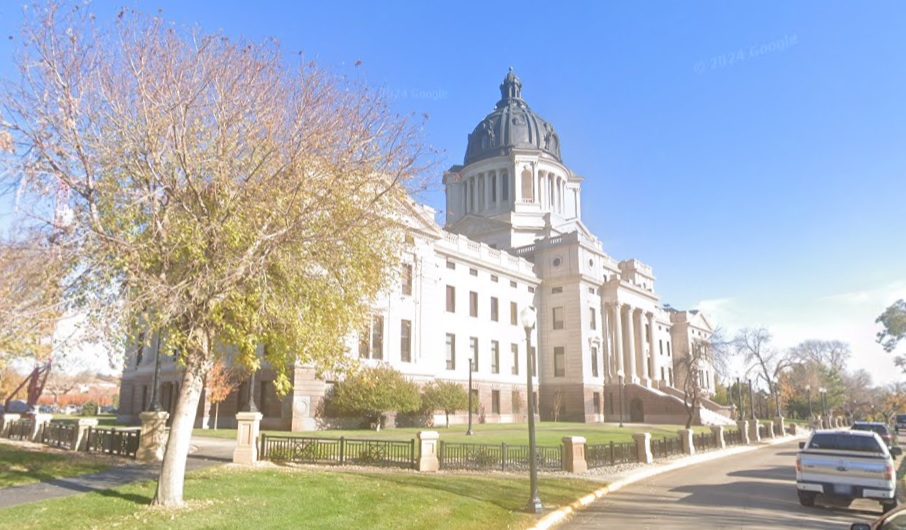PIERRE, S.D. – Gov. Larry Rhoden signed a bill that strips eminent domain authority from companies building carbon pipelines Thursday, giving opponents of the Summit Carbon Solutions pipeline final victory.
That victory has been years in the making for landowners opposed to Summit’s ability to use eminent domain to get easements on their property for the project. Although Summit asserted that it negotiated voluntary agreements with the majority of landowners it dealt with, it also filed dozens of lawsuits against landowners who wouldn’t sign a deal.
The question of whether Rhoden would sign or veto the bill was the topic of the week at the Capitol after the Senate approved it with a nearly veto-proof margin.
While saying that he didn’t want to intrude on economic development opportunities for the state, he said those opportunities cannot harm the freedom of others.
“Freedom ends when impinging on the freedom of others,” he told reporters at a press conference.
In his long legislative career, Rhoden said he had always been a champion of property rights.
“I was a prime sponsor to reform eminent domain at one time,” he said of his legislative history on the topic.
Carbon capture pipelines had only been added in state law in the last few years as one of the projects allowed to use eminent domain. They joined other common carriers such as gas and oil companies and utility companies that have the power under state law.
The inclusion of carbon pipelines as a common carrier preceded the controversy of Summit’s proposal – as well as that of another company that withdrew its plans.
Summit hoped to connect ethanol plants in the region to collect carbon they produce, transporting the carbon to deep underground storage in North Dakota. Ethanol producers in South Dakota argued they would be locked out of markets that insist on carbon neutral fuel sources.
In a statement to South Dakota Broadcasters Association, the company said South Dakota “changed the rules in the middle of the game.” It noted that it had already received approvals in Iowa, North Dakota and Minnesota.
“This kind of regulatory uncertainty creates real challenges — not just for our project, but for the ethanol plants in South Dakota that now face a competitive disadvantage compared to their counterparts in neighboring states,” the statement said. “While this presents obstacles, our project moves forward in states that support investment and innovation, and we will have more news on that soon.”
Rhoden said he based his decision off of hundreds of conversations, listening to all viewpoints on the issue.
While backers of the Summit project referred to House Bill 1052 as a “kill shot” to the project, Rhoden said he disagreed, echoing the sponsors of HB 1052. He said the company’s project could still move forward, but easements would have to be voluntarily agreements.
“The ethanol industry,” he added, “will remain a crucial part of our state’s economy.”
Jonathan Ellis of The Dakota Scout contributed to this report.


